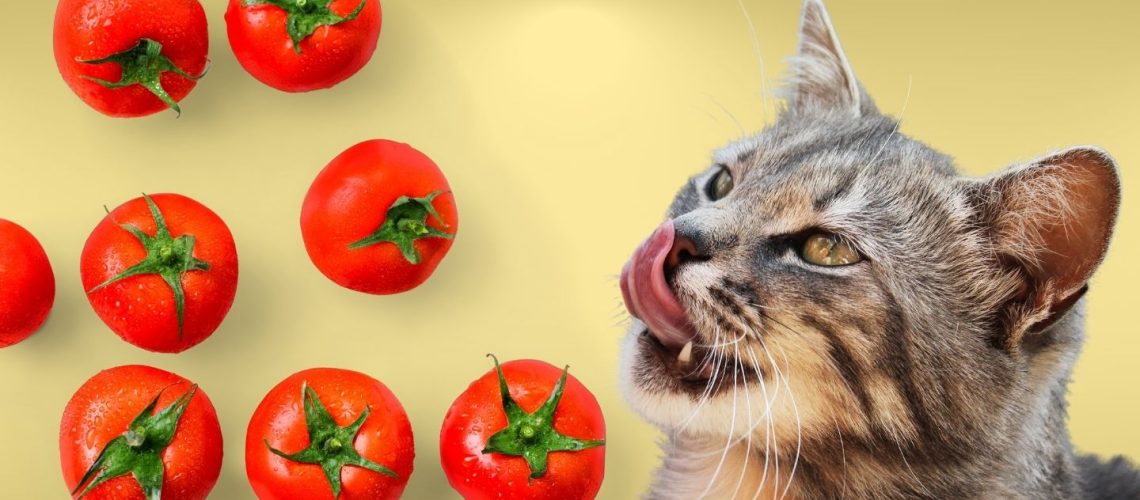The answer is yes; cats can eat tomatoes in small amounts. However, it is not recommended to make it a staple of their diet, as some parts of the tomato plant can be toxic to felines. It is essential to provide a balanced diet for cats, as they have specific dietary needs, and certain human foods can be toxic or unsafe for them.
Can Cats Eat Tomatoes?
Cats can eat tomatoes, but only in moderation. There are reasons why tomatoes should not be a regular part of a cat's diet, and it is crucial to understand the risks and benefits associated with feeding tomatoes to cats.
Health Benefits of Tomatoes for Cats
Source of vitamins A and C
Tomatoes can be a good source of vitamins A and C, which can contribute to a healthy immune system and overall wellbeing.
Antioxidant properties of lycopene
Lycopene, an antioxidant found in tomatoes, can help support a healthy immune system and protect against cell damage.
Fiber content and its benefits for digestion
Tomatoes also contain a small amount of fiber, which can aid digestion and promote a healthy gastrointestinal system.
Risks and Precautions
Toxicity of tomato plants and leaves
Tomato plants and leaves, along with unripe tomatoes, contain solanine, a toxic compound that can cause gastrointestinal upset, difficulty breathing, and even death if ingested in large amounts by cats.
Symptoms of solanine poisoning
Symptoms of solanine poisoning in cats include vomiting, diarrhea, weakness, confusion, and difficulty breathing. If your cat shows any of these symptoms after ingesting tomato leaves or plants, contact your veterinarian immediately.
Gastrointestinal upset from excessive tomato consumption
Even ripe, red tomatoes can cause gastrointestinal upset if consumed in large amounts by cats. It is important to limit their intake to only a small piece of tomato as an occasional treat.
Allergic reactions or individual sensitivities
Some cats may have an allergic reaction or individual sensitivity to tomatoes, causing digestive issues or other adverse reactions. Monitor your cat's reaction to tomatoes and discontinue feeding them if any symptoms occur.
How to Safely Feed Tomatoes to Cats
Choosing ripe and fresh tomatoes
Only feed your cat ripe, fresh tomatoes, as unripe tomatoes and the plant parts contain solanine, which is toxic to cats.
Removing seeds, skin, and stems
To reduce the risk of choking or indigestion, remove the tomato seeds, skin, and stems before feeding them to your cat.
Serving size and frequency recommendations
Feed your cat a small piece of tomato no more than once or twice a week. Monitor their reaction and adjust the serving size and frequency accordingly.
Monitoring your cat's reaction to tomatoes
Pay close attention to any changes in behavior, appetite, or health after feeding your cat tomatoes. If you notice any adverse reactions, discontinue feeding them tomatoes and consult your veterinarian.
Alternatives to Tomatoes for Cats
Other fruits and vegetables safe for cats
Some alternatives to tomatoes that are safe for cats include apples, blueberries, carrots, and green beans.
Commercial cat treats as an alternative
Consider feeding your cat commercial cat treats that are specifically formulated for their dietary needs.
The importance of protein in a cat's diet
Cats are obligate carnivores, which means protein should be the primary component of their diet. Provide a balanced diet with high-quality protein sources for optimal feline health.
Frequently Asked Questions
Can cats eat cooked tomatoes or tomato sauce?
Cats should not consume cooked tomatoes or tomato sauce, as they often contain added ingredients, such as garlic and onions, which can be toxic to cats.
Can cats eat cherry tomatoes or other tomato varieties?
Cats can eat cherry tomatoes and other tomato varieties, but only in moderation and as long as they are ripe and fresh.
Are other nightshade vegetables safe for cats?
Nightshade vegetables, such as potatoes and eggplants, can be toxic to cats if consumed in large amounts, especially when raw or unripe.
Conclusion
In conclusion, cats can safely eat tomatoes in small amounts as an occasional treat. However, it is important to monitor their intake and avoid feeding them any tomato plants or leaves. By following these guidelines, you can help ensure that your feline friend enjoys the potential health benefits of tomatoes without any negative side effects. Encourage a balanced diet containing high-quality proteins, as this is essential for overall feline health.











